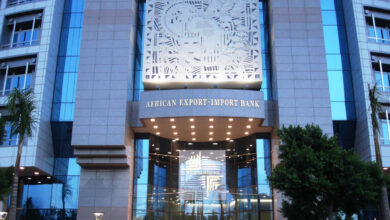Stable FX, Stronger SMEs: BoG Reforms to Spur Ghana’s 24-Hour Economy Agenda

The Governor of the Bank of Ghana, Dr. Johnson Asiama, has reaffirmed that recent reforms in the foreign exchange (FX) market are designed to equip Ghanaian businesses, particularly small and medium-sized enterprises (SMEs), with the stability and transparency they need to survive and grow.
Speaking at a workshop on supporting SMEs to integrate sustainably into global value chains, Dr. Asiama said the reforms were never intended as short-term fixes but as structural adjustments to ensure a fairer, more rules-based FX system.
“For SMEs importing machinery, exporting goods, or planning investments, FX stability and transparency shape pricing, determine competitiveness, and often decide whether a business survives,” he stressed.
Transparency to Build Confidence
The reforms have deepened transparency and strengthened interbank activity, moving the FX market away from heavy reliance on central bank intervention and informal cash-based transactions. By enforcing reporting requirements and enhancing price discovery, exchange rates now better reflect real supply and demand. This gives SMEs greater confidence when setting export prices or securing imported raw materials.
Curtailing Speculative Pressures
Speculative demand and large cash withdrawals had previously made the market vulnerable to instability. The Bank of Ghana has tightened rules on big-ticket transactions and enforced stronger anti-money laundering and know-your-customer requirements. Dr. Asiama said this shift of flows into formal channels is not only safeguarding the integrity of the FX market but also ensuring that foreign exchange is available for genuine trade and productive use.
Predictability Through FX Auctions
Another critical reform is the streamlining of FX auction mechanisms. By providing a clearer structure for allocation, SMEs are better able to plan their operations and investments. The Governor noted that Ghana’s approach is context-specific but builds on lessons from other African economies where liberalisation of FX markets has brought tangible benefits.
Reducing Dollar Dependence
Dr. Asiama also linked the reforms to the broader dedollarisation agenda. Many Ghanaian firms have long been exposed to risks from conducting transactions in dollars while earning revenues in cedis. By promoting cedi-based instruments and tightening rules on foreign currency use, the central bank hopes to build resilience and encourage businesses to confidently transact in the local currency.
Anchored in Stability
The Governor acknowledged recent modest depreciation of the cedi but attributed it to seasonal trade pressures rather than a reversal of gains. He noted that Ghana’s external position has improved significantly in 2025, with reserves strengthening and the cedi appreciating earlier in the year. “FX stability is not a luxury – it is a prerequisite for investment and competitiveness,” he said.
The Link to Ghana’s 24-Hour Economy
Dr. Asiama stressed that the reforms have a direct bearing on government’s wider development ambitions, particularly the 24-hour economy agenda. A rules-based, transparent FX market, he explained, is essential for attracting investment, ensuring predictable costs, and enabling SMEs to scale up production. Without this foundation, round-the-clock operations in manufacturing, services, and logistics would be undermined by volatility and uncertainty.
The success of Ghana’s 24-hour economy hinges on SMEs, which form the backbone of job creation, exports, and supply chains. Stable FX markets not only protect their margins but also make Ghana more attractive for investors looking to partner with local firms.
“The purpose of these reforms is not simply to defend the cedi,” Dr. Asiama concluded. “It is to equip Ghanaian enterprises with a transparent, predictable FX environment that enables them to compete confidently, create jobs, and support the country’s long-term growth.”




